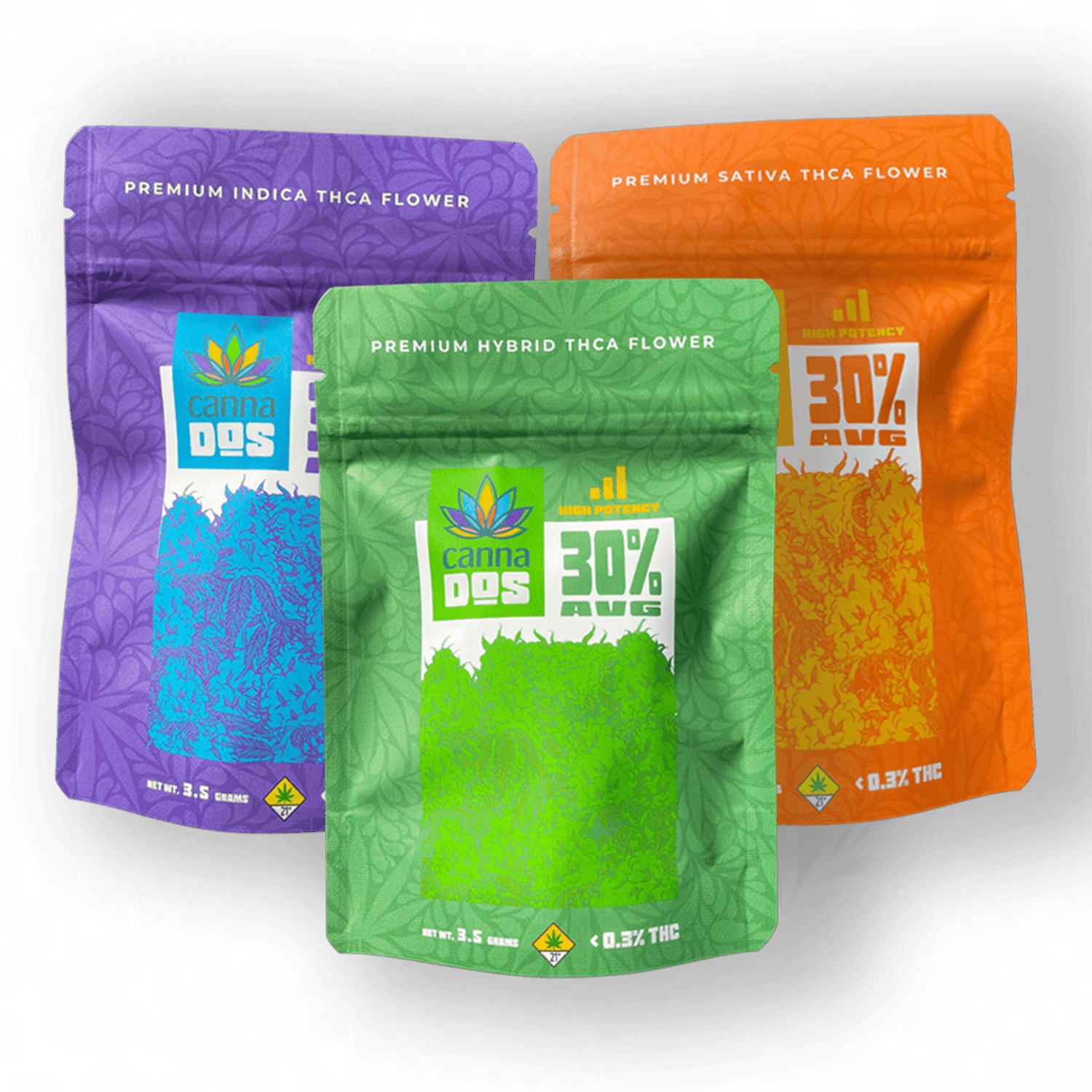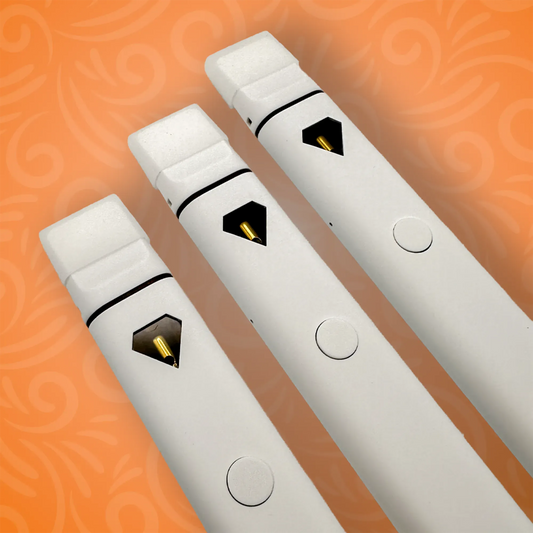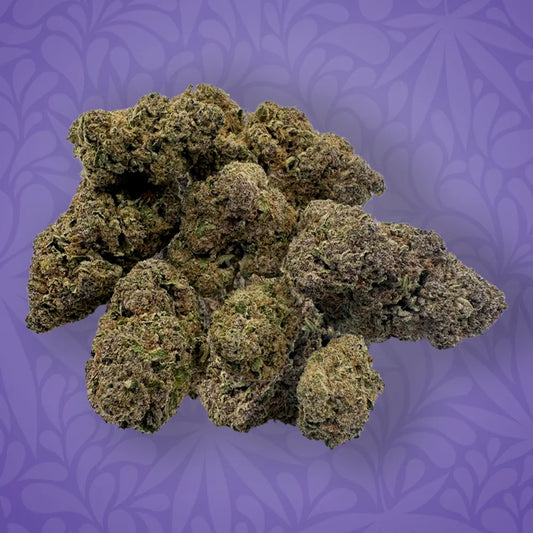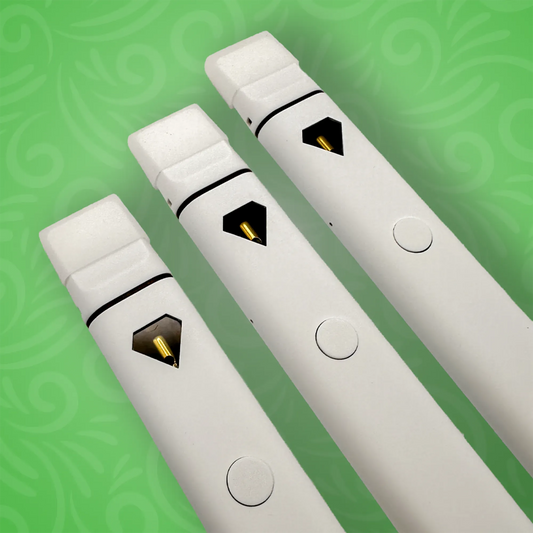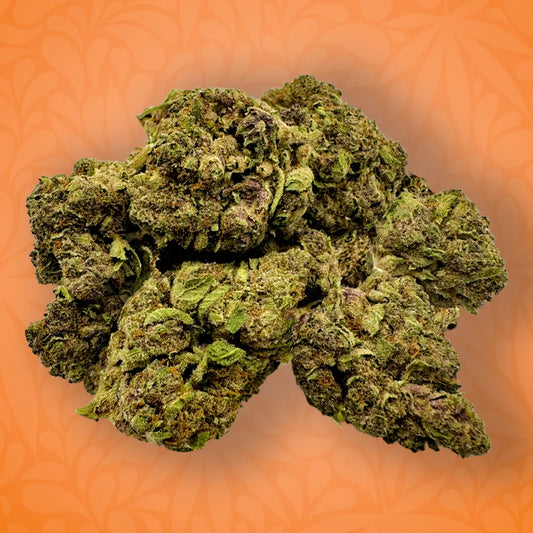
COAs, Lab Tests, and Why They Matter for Legal THC
Share
When you’re shopping for legal THC products like those at Canna Dos, you might notice mentions of “third-party lab tests” or see a Certificate of Analysis (COA) link or QR code on the package. These aren’t just fancy terms, they are the backbone of transparency and safety in the cannabis industry, and a way for us to continue to push for further legality, transparency and compliance. In this blog post, we’ll break down what Certificates of Analysis are, why they matter (especially for federally legal THC products), and how Canna Dos goes above and beyond to ensure every product is Farm Bill compliant, high-quality, and safe for our customers. By the end, you’ll know how to read a COA and why it’s so important for you as a consumer.
What is a Certificate of Analysis (COA)?
A Certificate of Analysis (COA) is a lab report for cannabis or hemp products. It’s issued by an independent, accredited laboratory after testing a product batch. The COA confirms exactly what’s in the product – and what isn’t. In simple terms, a COA verifies a product’s cannabinoid content (like the levels of THC and CBD), checks for any unwanted contaminants, and makes sure the product meets regulatory standards. For example, the COA will show the percentage of Delta 9 THC or other cannabinoids in a product, and confirm that it’s below legal limits. It might also list the terpene profile (the aromatic compounds that give cannabis strains their flavor and aroma) and the results of safety screenings for things like pesticides, heavy metals, or mold. Essentially, a COA is your proof that a product is potent, pure, and legal.
Think of it this way: if the label on an edible says each piece has 15 mg of Delta 9 THC and under 0.3% THC, the COA is the evidence from a lab verifying those numbers. Reputable companies like Canna Dos use third-party labs (meaning the tests are done by an independent organization, not in-house) to ensure unbiased results. This practice has become an industry standard, and in many state-regulated cannabis markets, it’s even a legal requirement to have products lab-tested and accompanied by COAs.
Why Lab Tests and COAs Matter (Especially for Legal THC)
Lab testing and COAs are crucial for a few big reasons:
- Legal Compliance: If you’re buying “legal THC” products online, it usually means they are derived from hemp and comply with the 2018 Farm Bill definition of hemp. The Farm Bill made hemp (cannabis with very low active THC) federally legal and set the threshold, hemp products must contain no more than 0.3% Delta 9 THC by dry weight. A COA is the document that proves the product meets this standard. It will clearly show the Delta 9 THC percentage. For instance, at Canna Dos we ensure all our products contain <0.3% Delta 9 THC to stay within federal legal limits. The COA confirms that compliance, so you (and law enforcement or regulators) can see the product is indeed federally legal.
- Safety and Purity: Cannabis plants can absorb substances from soil or processing, and products might be exposed to contaminants. A quality COA doesn’t just check potency; it also should show results for safety tests – things like pesticides, heavy metals, residual solvents, bacteria, or mold. This matters for your health. Every Canna Dos product is lab tested for purity to ensure it’s free of dangerous levels of these contaminants. Unfortunately, not all companies do comprehensive testing. One recent industry analysis found that while the majority of hemp derived THC products had potency test reports, about 75% had no impurity testing done – meaning most of those products weren’t fully confirmed to be free of contaminants. We don’t take such risks; Canna Dos works with labs that perform full panel testing so you know our products are clean and safe.
- Accuracy & Transparency: A COA holds a company accountable for what they advertise. It verifies the cannabinoid levels in the product, so if we say a vape cartridge is 90% THC or a gummy has 30 mg Delta 9 THC, our lab results back that up. This protects you from mislabeled products. In the past, some less reputable sellers overstated the CBD or THC content, or even sold products that contained none of the promised ingredients. In fact, multiple studies found that over 70% of CBD products sold online were mislabeled, with some containing significantly less CBD than advertised (and some containing unexpected THC). That’s pretty alarming! COAs help prevent that by giving you the real data. You can trust that what’s on the Canna Dos label is what’s in the product. If a company doesn’t provide that data, it’s a red flag. Transparency is key in this industry – you deserve to know exactly what you’re consuming.
- Quality & Enjoyment: At Canna Dos, we pride ourselves on sourcing top-quality hemp (organically grown in the USA) and we like to share those details with you. The COA is like a report card for the product’s quality.
In short, COAs matter because they provide proof and peace of mind. They ensure the product is legal, safe to consume, and as advertised. For customers, especially those new to the world of legal THC, this is super important. You should feel confident that you’re getting a legitimate product that won’t get you in legal trouble and won’t harm your health.
COAs: Standard in Dispensaries, A Must for Online Sellers
If you’ve ever visited a state-licensed cannabis dispensary (in states where recreational or medical marijuana is legal), you might know that testing is non-negotiable. Most U.S. states that have legal cannabis require lab testing on all products sold in dispensaries. That means every gram of flower, vape pen, or edible on a dispensary shelf comes with a lab test on file. As a customer, you can often ask to see the COA for a product at a dispensary, and it will show things like THC percentage, CBD, and that it passed safety tests. This is an expected norm in the regulated market – it’s about consumer safety and product quality control enforced by law.
Now, in the realm of online hemp-derived products (like CBD oils, Delta 8 THC carts, or hemp Delta 9 THC edibles), the rules can be a bit looser. The 2018 Farm Bill legalized these products federally, but it did not explicitly mandate third-party testing for them.
That means it’s largely up to companies to self-regulate and ensure quality. Reputable brands have stepped up and implemented dispensary-like standards even when not forced to. Canna Dos is one of those brands – we treat our products with the same level of scrutiny you’d expect from any licensed cannabis company. We test every batch and make the results public, because it’s the right thing to do.
However, not every online seller is so diligent. Some competitors unfortunately do not offer legitimate or up-to-date COAs for their products. In the unregulated wild west of online sales, you might encounter products with no lab results available – that’s a big warning sign. If a company isn’t showing any lab reports, you have to wonder why. Are they hiding something? As mentioned earlier, many products without third-party testing turned out to be mislabeled or of poor quality. Always be cautious: if you can’t easily find a COA for an online THC or CBD product, consider that a reason to look elsewhere.
Even when a lab report is provided, check the details. Make sure the COA is recent and matches the product batch you’re buying. Legitimate COAs will have a date and a batch or lot number. If you find a COA that’s several years old or doesn’t match the product label, the test might not actually cover the item in your hand. A good practice (and something we do at Canna Dos) is to update COAs regularly for each new batch of product. Avoid generic or outdated COAs – a COA should be specific to the exact product and batch you have. If a company is unresponsive when you request a COA or claims they don’t have one, that’s a red flag and you might want to steer clear.
The bottom line: COAs are an industry standard for any serious cannabis business, whether brick-and-mortar or online. Canna Dos recognizes this and believes our customers deserve the same level of assurance they’d get from a licensed dispensary.

How to Read a Certificate of Analysis
COAs might look intimidating at first (all those charts and chemical names!), but they can be broken down into a few key sections that anyone can understand. Here’s a simple guide on what a normal customer should look for in a Certificate of Analysis:
- Cannabinoid Profile/Potency: This is usually the first section to check. It lists all the cannabinoids detected in the product and their amounts. Look for Delta 9 THC and THCa (for flower products) and CBD, etc. For legal hemp products, the Delta 9 THC should be 0.3% or lower by dry weight – if the COA is from Canna Dos, you’ll see that confirmed (for example, 0.25% Delta 9 THC, which is under the legal limit). You may see results given in percentage (%) or in milligrams per gram (mg/g). The key is that it confirms low Delta 9 THC and shows the levels of other cannabinoids as advertised. If the product is a CBD gummy, for instance, this section lets you verify that the CBD mg per serving is correct.
- Purity and Contaminant Tests: This is a critical part of the COA for safety. A good COA will include panels for things like pesticides, heavy metals (lead, arsenic, etc.), microbials (mold, bacteria), mycotoxins, and residual solvents (chemicals from extraction). Usually, the COA will indicate a pass/fail or show “ND” (non-detectable) for these undesirable elements. For example, you might see a table of tested pesticides with results showing “None Detected” or values well below the acceptable limits. In Canna Dos COAs, we ensure tests cover pesticides, heavy metals, and more, so you know the product is free of harmful substances. As a customer, you want to see that all these categories are clear – meaning the product passed all safety tests. If a COA is missing these sections or if any contaminant shows up above safe limits, that’s a concern.
- Batch Information and Dates: A COA will always have some identifiers like a batch number or lot number, a sample ID, the date of testing, and the lab name. This information is important for traceability. Check that the batch or lot number on the COA matches the one on your product’s packaging (if provided). Also, check the test date – it should ideally be within the last and a half year or so, and definitely after the product’s manufacture date. At Canna Dos, for example, if you scan the QR code on your product package, it will pull up the latest COA on our website. We also list the lab’s name and the scientist’s signature on the report. This assures you the test is authentic and specific to your purchase. If you ever see a COA that doesn’t list a lab or has no date, that’s a sign to be skeptical. COAs should be recent and batch-specific.
- Pass/Fail Summary: Some COAs include an easy-to-read summary, often at the top or bottom, saying if the sample “passed” or “failed” overall and which tests were performed. If everything is within legal and safe parameters, it’s a pass. If something was out of spec, it might say fail (though it’s rare for companies to publish a fail – they’d ideally not sell that batch at all). With Canna Dos products, you’ll see that all relevant categories are passed – e.g., potency passes for legal THC limit, and all contaminant screenings pass. This summary can be a quick way for a newbie to see that “okay, this product cleared all tests.”
By focusing on these key areas, anyone can get the gist of a COA without being a scientist. And remember, if you ever need help understanding a Canna Dos COA, you can reach out to us – we’re happy to walk you through it. We also include a quick guide on our website about how to read our lab reports for those who want a deeper dive.
Watch out for padded “THC” numbers online
Some websites advertise big totals like 400 mg THC per edible, but in reality only a small portion is real Delta 9 THC and the rest is Delta 8, HHC, or CBD. That will feel weaker than the headline number suggests.
An easy guide
- Delta 9 THC and THCa are what deliver the classic THC experience. THCa converts to Delta 9 when heated.
- Delta 8 and HHC are milder. You need more to feel the same effects.
- CBD is non intoxicating. It will not create a THC high.
How to spot it
Open the COA and look at the cannabinoid table. Confirm the Delta 9 total. If most of the makeup is Delta 8, HHC, or CBD, the experience will be different from what you expect.
The Canna Dos approach
We only source and formulate with Delta 9 THC and THCa. Our labels list exact amounts for each cannabinoid, and every batch has a third-party COA so you can verify the numbers before you buy.
Do dispensaries use COAs
Yes. Licensed dispensaries keep COAs on file and will show them on request. Online, standards can vary. If there is no COA, if the COA is not batch specific, or if it only shows potency with no safety testing, that is a red flag.
Canna Dos’s Commitment to Transparency and Quality
At Canna Dos, we take compliance, quality, and transparency very seriously – it’s the cornerstone of our brand. We know that many of our customers are new to the world of hemp-derived THC, and it’s our job to make sure you feel confident and informed about what you’re getting. Here are the specific ways Canna Dos stands out when it comes to COAs and lab testing:
- Federally Legal Products – Guaranteed: All our products, from Delta 9 THC edibles to THCa flower, are derived from hemp and contain less than 0.3% Delta 9 THC, in full compliance with federal law. We source our flower, vapes, gummies, and other items carefully to meet this standard. The lab results on our COAs consistently confirm this legal compliance. This means you can enjoy our products knowing they are Farm Bill compliant and legal in the USA.
- Every Batch Third-Party Lab Tested: We don’t do selective testing or “random spot checks” – we test every batch of every product via independent third-party labs. Whether it’s a new flavor of edible or a fresh harvest of hemp flower, it gets sent out for a full panel of tests. This includes the cannabinoid profile and a comprehensive safety screening (potency, terpenes, pesticides, heavy metals, microbes, you name it). By using external labs, we ensure objectivity. The labs we partner with are reputable and often ISO-certified, meaning they meet high standards for testing accuracy. We’re not just picking the cheapest or fastest route – we choose labs that do it right, because our customers’ safety is paramount.
- COAs for Every Product – Easy Access: Transparency is a core value for Canna Dos. We make all our Certificates of Analysis readily accessible to you. Every order comes with a scannable QR code on the package that links to the digital COAs on our website. You can also find the lab results directly on our website’s Lab Results or product pages – no scavenger hunt required. We even include the specific COAs of every item you purchase in every order made on our website. The idea is that before you consume the product (or even buy it), you have the ability to verify its lab test results yourself. We want you to see the purity and potency data, not just take our word for it. This level of openness is something not all companies provide, and we’re proud to go the extra mile.
- Education and Support: We understand that reading COAs or just navigating the cannabis space can be confusing for newcomers. That’s why we’re not only providing the data but also aiming to educate. Blogs like this one (and resources on our site) are part of that effort – breaking down the science into friendly advice. Our team is always happy to explain any of our lab results or answer questions about legality and safety. We prefer an informed customer, because it means you can purchase and use our products with true peace of mind. By being transparent, we hope to earn your trust and build a long-term relationship.
At the end of the day, we wants you to feel safe and satisfied. We love this industry and the benefits that legal THC products can offer, and we believe in doing it the right way – within the law, with high quality, and with full honesty to our customers. These strict guidelines can help pave the way for stronger legal groundwork for hemp in the future. That’s why every Canna Dos order comes with a verified COA. It’s not just a piece of paper; it’s our promise to you that we stand behind our products.
Conclusion
Certificates of Analysis (COAs) and lab tests might sound technical, but they’re something every customer should appreciate. For legal THC products (like hemp-derived Delta 9 edibles or THCa flower), COAs are especially important because they prove the product is within federal legal limits and free of harmful chemicals and more.
Remember, whether you’re purchasing from a local dispensary or an online shop like Canna Dos, always look for that lab test. It’s your best assurance of quality. If a company doesn’t provide up-to-date COAs, think twice – you deserve to know what you’re consuming. We comply with all federal guidelines for Delta 9 THC content and prioritize your safety and satisfaction.
As a customer just learning about this industry, don’t be overwhelmed by the science. The key takeaway is simple: Lab tests = Safety + Legality + Honesty. COAs are there to protect you and enhance your experience. So next time you enjoy one of our Delta 9 gummies or pack a bowl of our THCa flower, you can do so with confidence, knowing that the product has been thoroughly vetted for quality. Canna Dos is proud to share our lab results and we hope this guide has helped demystify COAs a bit. Stay informed, stay safe, and enjoy the benefits of legal THC with peace of mind!
Happy and safe smoking from the Canna Dos team! 🌿👍
